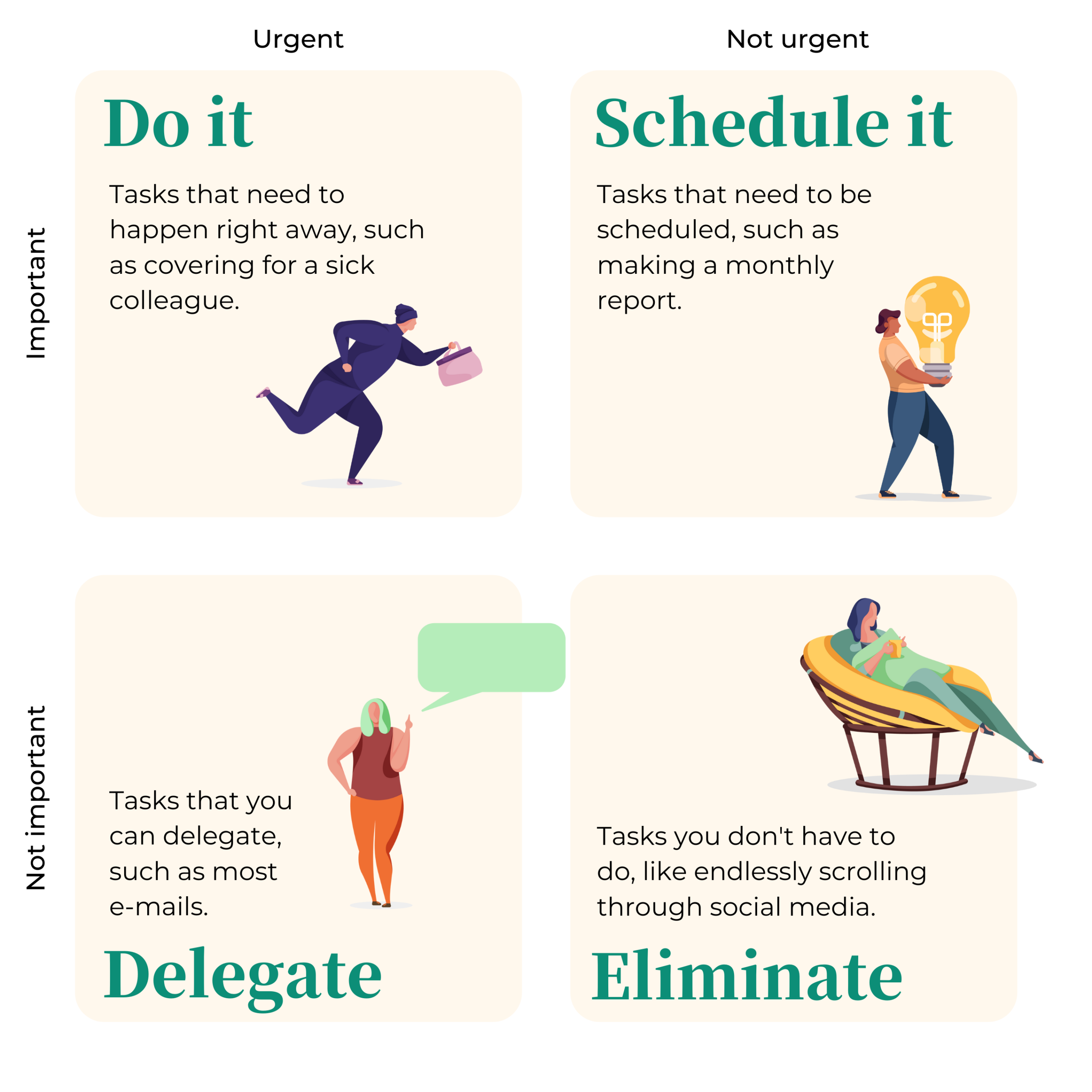“Alternatively, I often use the ‘choose your battles’ buckets. You write all your to-do’s down and then divide them over three imaginary ‘buckets’”, clarifies psychologist Soesja Vogels. “The 60% bucket contains things you are not going to address at this exact moment. The 30% bucket contains things you can shortly act upon (for example, send one email), and in the 10% bucket there are the things that you are actually gonna spend time upon right now.”
Organising our daily duties according to these approaches is the first step to identify what actually matters and what doesn’t in our daily activities.
3. Less is more
If you think that performing multiple activities at once will get you more results, you probably just fell into the trap of multitasking.
Although it might sound tempting, research has proved multitasking to be extremely inefficient when it comes to productivity. The American Psychological Association, for example, has reported that every time you switch between different tasks, you have to re-focus on the new one, which can cost as much as 40 per cent of someone’s productive time.
“Next time you find yourself multitasking, take a quick self check-in of the various things you are trying to accomplish. Then, try to fully devote your focus to one task only for twenty minutes, before switching to the other.” says psychologist Madelief Falkmann. “And remember to limit distractions, such as notifications and take breaks in between.”
These practical solutions will allow you to reach a deeper level of concentration, producing the best possible results.
4. Eat that frog
Or more simply: do the tough thing first, when your brain is fresh. “Eating that frog is about doing your biggest task first”, says psychologist Margit Nooteboom. “When you have started your day with completing your hardest or biggest task, it gives a feeling of satisfaction throughout the whole day.”
Margit proposes a clear division into four categories. Read them below and try to fill them in for yourself.
- Things you don’t want to do, but need to (this is the frog 🐸);
- Things you want to do and need to;
- Things you want to do, but don’t need to;
- Things you don’t want to do and don’t need to;
As Mark Twain writes: “Eat a live frog, first thing in the morning and nothing worse will happen to you the rest of the day.”
5. Recharge your batteries
This is a bit of advice (and a gentle reminder) to unwind. We are not robots and, luckily, we don’t have to act as if we were. No matter how pros your attention management strategies are, you should never ignore the power of taking a break. Many studies show that taking breaks (even short ones) not only makes people more productive, but also boosts energy and creativity.
“I often use the mantra ‘being unproductive is being productive”, explains Soesja. “We need rest. We are like phones that need to be charged once in a while. Our batteries can’t go on forever and charging them makes us more productive after. So being unproductive is an investment!”
Remember to carve a moment for yourself: exercise, eat well, soak up some sun, hug your loved ones a moment longer. Or just get up and focus on something else for a while (tip: try a 5-min guided mindfulness session). This will help you get back on track mentally refreshed and with a renewed sense of purpose and energy.
💡 Also interesting: Lacking Motivation? How to Stay Inspired and Engaged at Work
The bottom line
Living a more productive life means making your life better. Remember that it takes time to master the habits that really work for you and, ultimately, it is a trial-and-error process.
Find the strategies that best fit your day-to-day life and let your productivity improve without necessarily overturning your routine. Small steps are still steps and even the slightest change could make a difference.
As a final point: remember to reward yourself when you achieve a goal! Treating yourself with love and care is the greatest secret to feel productive and motivated for the future.
💡 Curious to dive deeper into the psychology of productivity? Download our time management guide.






